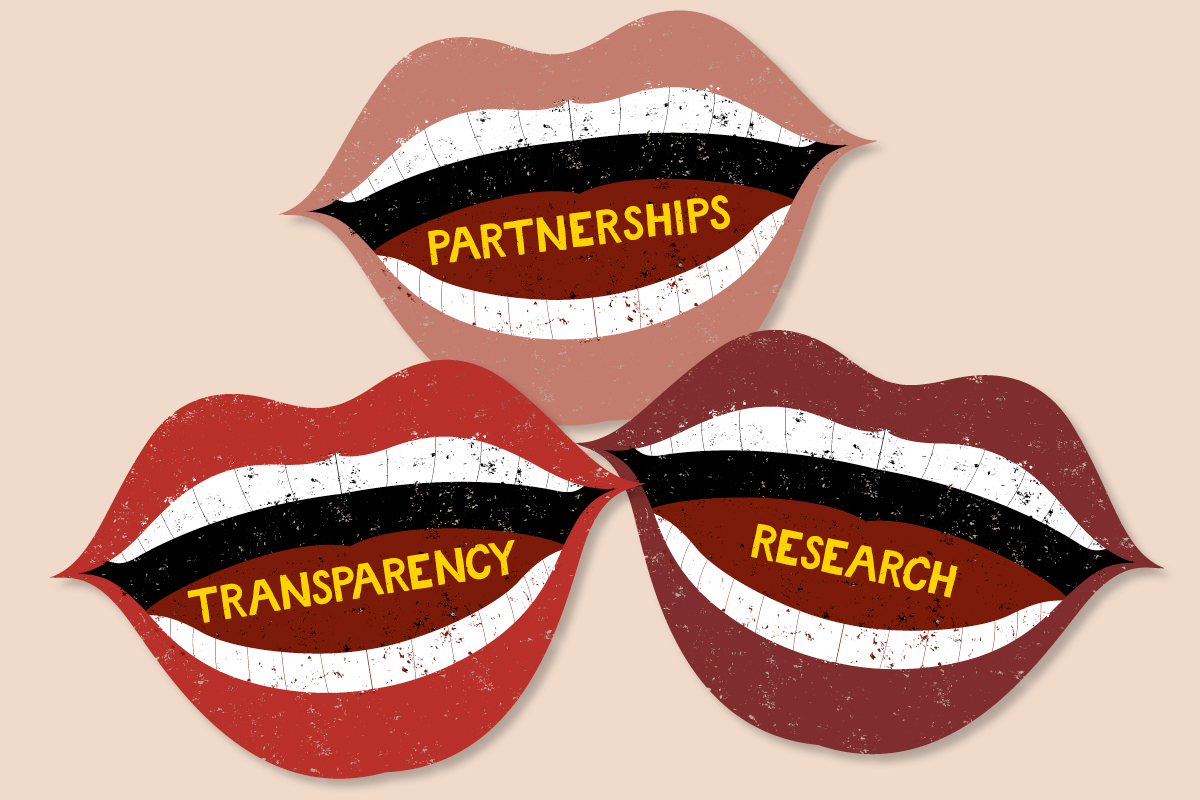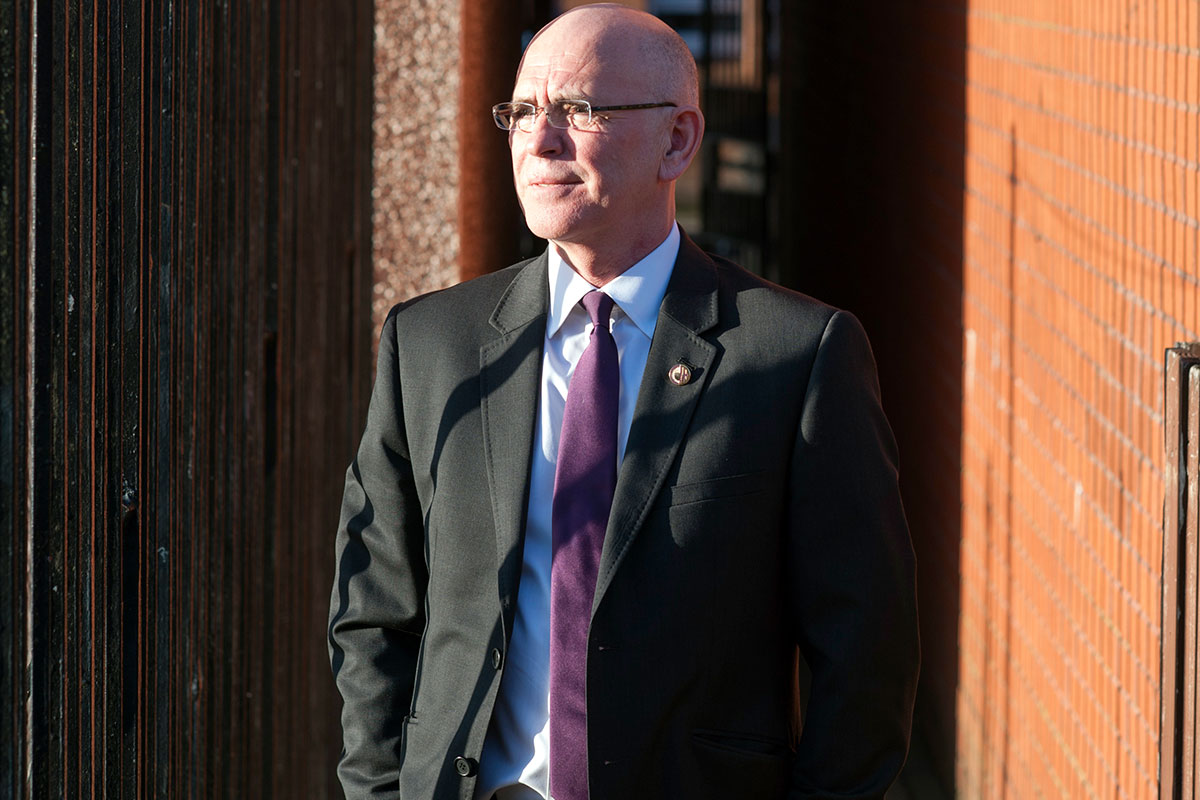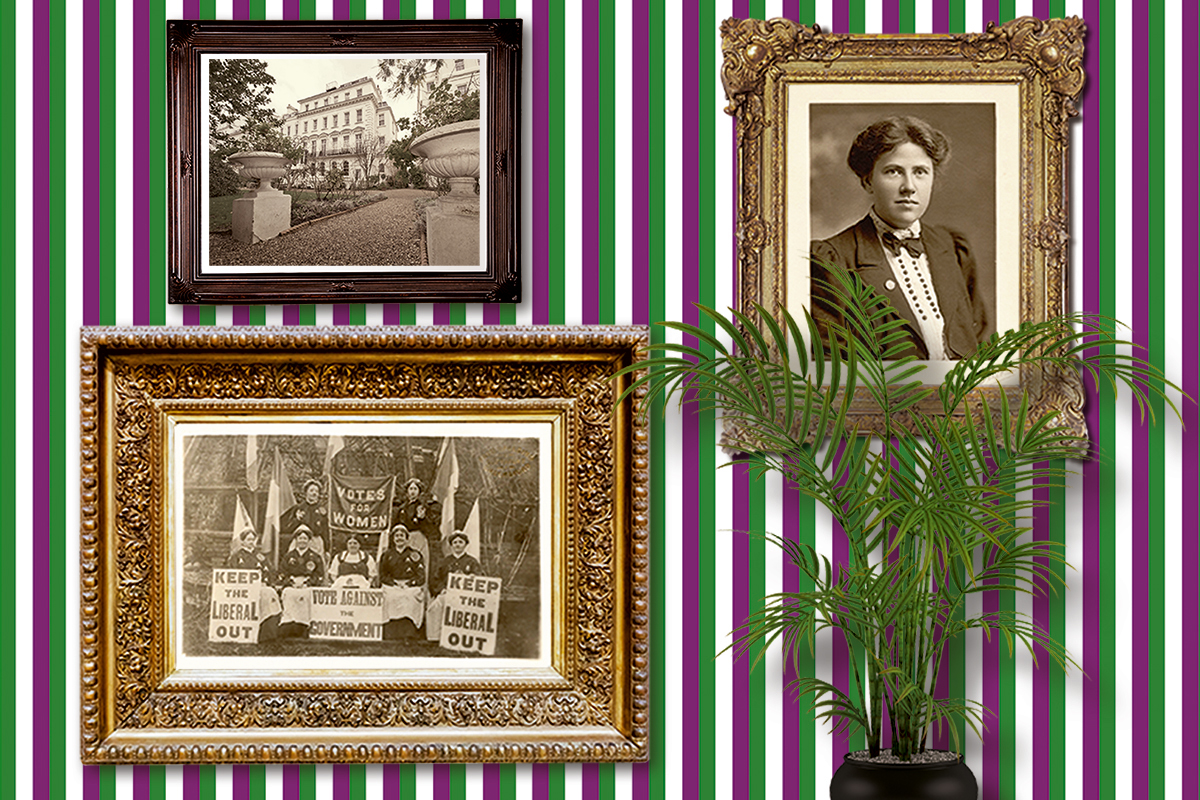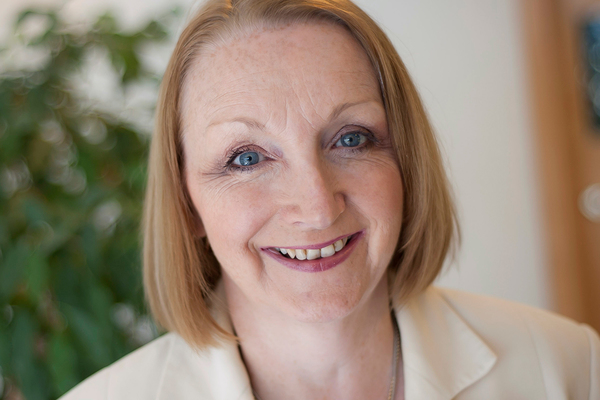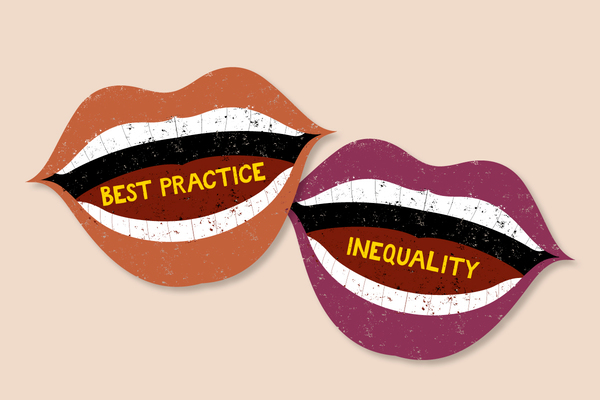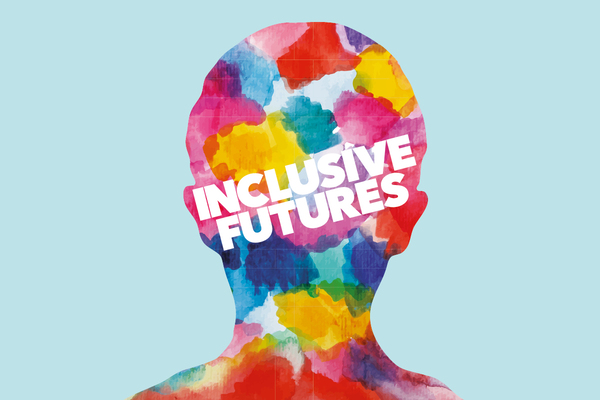You are viewing 1 of your 1 free articles
Housing is a women’s rights issue
A new forum is holding its inaugural event today. It aims to confront how gender inequality influences the housing crisis – and how the sector should respond. Jess McCabe reports. Illustration by Getty
A version of this article was originally published on 31 October, 2018
What does housing have to do with gender inequality?
If you attend housing events, participate in the sector’s many Twitter discussions – even read this magazine religiously – you might be stumped for an answer.
Debate in the housing sector touches on many subjects, but gender inequality is largely not one of them.
If you look at some of the facts, that is quite surprising. Women make up the majority of lead social housing tenants, and two in three housing benefit claimants.
The gender pay gap means that women on average earn less – the housing knock-on effect is that women in the private rented sector spend an average of 55% of their income on rent, compared with 36% for men.
When it comes to buying a house, the numbers are just as stark: a woman on the median income who wants to get a mortgage will need to borrow 15.4 times their salary, whereas a man on the median income would only need to borrow 10.1 times their wage.
These stats have been gathered together by a new organisation called the Women’s Housing Forum, set up this year with the aim of changing some of those conversations in the sector – and ultimately altering how social landlords do business.
So far this organisation is small – it has formed a steering group and announced plans for a first open meeting. But it has big plans to realign the priorities of the sector.
The idea for the Women’s Housing Forum came directly from conversations between senior women in the sector.
What started it, say steering group members, was Alison Inman’s decision to focus her presidency of the Chartered Institute of Housing (CIH) on domestic abuse. (Although abuse affects everyone, statistics show that women are more likely to be victims and men more likely to be perpetrators; that women are more likely to be victims of repeat and more violent abuse; and more female victims are murdered by their current or former partner.) This inspired conversations about wider ways that women’s inequality influences housing issues.
The idea for the Women’s Housing Forum came directly from conversations between senior women in the sector
“We had all been thinking about this separately,” says Denise Fowler, chief executive of Women’s Pioneer Housing and one of the initial co-chairs of the forum, along with Zaiba Qureshi, chief executive of Housing for Women.
“There was a lot of energy around the impact of Alison’s CIH presidential work on domestic violence,” agrees Kate Dodsworth, chief executive of Gateway Housing Association and a member of the steering group. “At the same time, there were a number of us in the sector talking about how housing issues affect women differently. We decided to do something about it.”
From this, a formal steering group was formed (see below) – and it has so far met three times. In those meetings it has set out its terms of reference, its principles) and agreed to commission further research to pin down how gender inequality affects housing. Initially, it will be chaired by Ms Fowler.
The purpose of the forum, according to those terms of reference, is “to raise awareness of the links between women’s housing needs and gender inequality and to encourage social housing providers and other strategic partners to work together to tackle these issues”.
The first step? Commissioning some original research which builds on what we know already about women’s housing issues – and laying out the evidence to the sector.
“There hasn’t been a proper gendered analysis around housing” – Denise Fowler
The basic stats that the forum has now were found by an intern working for Women’s Pioneer, but the commissioned research will do a thorough sweep of the evidence available and find out where additional investigations are needed, according to a tender document for the research shown to Inside Housing.
“There’s a big gap in the research. There hasn’t been a proper gendered analysis around housing,” says Ms Fowler. Some of the holes in the evidence base are already obvious, she adds, even from the preliminary work done so far. “It was very, very difficult to find stuff that specifically looked at women and race – you could find some things that looked at race and housing or women and housing but not BME women [and housing],” she says. And there was “almost nothing” on the intersection of LGBT issues, gender inequality and housing.
Who’s who on the steering group
Kate Dodsworth
Chief executive of Gateway Housing Association
Victoria Dingle
Tenant board member at Soha Housing
Vanessa Dixon
Head of operations at Shelter
Aileen Evans (pictured above)
Chief executive of Grand Union Housing Group
Luchia Fitzgerald
Active tenant of Irwell Valley and activist
Denise Fowler
Chief executive of Women’s Pioneer Housing
Helen Greig
External affairs manager for the East Midlands at the National Housing Federation
Alison Inman
President of the Chartered Institute of Housing
Jenny Osbourne
Chief executive of Tpas
Clare Powell
Chair of the Chartered Institute of Housing’s policy advisory committee
Zaiba Qureshi
Chief executive of Housing for Women
Rebekah Ryder
Senior researcher at the National Housing Federation
Tamsin Stirling
Housing consultant and researcher
Liz Zacharias
Senior consultant at Campbell Tickell
Given the ageing population – and how this specifically affects the social housing sector – this will be another likely focus for the future. “The initial research we’ve done looks at women’s income in retirement. Actually finding those figures was really difficult,” Ms Fowler explains. (One of the stats that the forum has found already? Women are three times more likely than men to retire without a full state pension.) “Do we [as a sector] think about the fact that women are going to be over-represented in older people’s housing? Or do we think about a generic older person?”
The steering group is made up of women, but Ms Fowler stresses this is more an accident of who are the senior sector figures who have come together in the early stages of the process and are clearly interested in women’s housing issues.
“It was a ‘Who do we know who is really interested in women’s housing’s issues?’ and actually the people we listed off were women,” she notes. Men will be welcome to come to the forum meetings and take part in future – the concept is that it will be “around women’s housing issues, not for women”, Ms Fowler explains.
The forum is in fundraising mode to pay for the first bit of research, which will cost £25,000. The group will ask the National Housing Federation, CIH and others to pitch in. How easy it is to raise the money will no doubt be an early indication of whether the wider sector is receptive to the need for work on women’s housing issues.
Tenant activist Luchia Fitzgerald is another of the initial steering group members – although not one of the core group that came up with the idea, she was asked to join as the forum started to take shape.
Although she is taking part, speaking on the phone she’s a little weary on the prospects for the forum to make a real change. “I’ve seen it all before. I’m 71 – and I remember the women’s movement in the 70s, and I have never stopped being a member. Nothing has changed over the years,” she says. “I look at this [document setting out the research plan], and I thought to myself: ‘Here we go again’.”
“How easy it is to raise the money will no doubt be an early indication of whether the wider sector is receptive to the need for work on women’s housing issues”
Rather than commissioning research, Ms Fitzgerald would rather the forum started by asking female tenants to tell the sector what the issues are. “Call a meeting and get different types of people from around the country,” she says.
The key barometer of the forum’s success, as Ms Fitzgerald says, will be whether it can move from researching the problem in whatever form to enacting actual change in the sector that materially improves inequities women face in the housing market – and beyond.
Ms Dodsworth from Gateway Housing is more upbeat about the potential for change, at least within social housing. “I think the sector is alive to understanding the issues and then taking appropriate action if we highlight them,” she says.
The next step is that first public meeting. It’s open to anyone interested in women’s housing issues, and will take place in London on 18 January 2019. “We’ve already sent out some emails,” says Ms Fowler. “Well over 100 people are interested in coming to forum meetings. We want it to be available to people across the sector.”
Principles of the Women’s Housing Forum
- Raise the profile of the role social housing providers can and must play in eliminating discrimination against women accessing and keeping suitable housing.
- Distil existing research and commission further research into the links between gender inequality and women’s housing needs, and the impact that a failure to tackle these issues has on women and society as a whole.
- Consider the additional impact of intersectionality including: race, sexuality, age, religion, disability and income/poverty on specific groups of women facing structural inequality.
- Use research and best practice from the sector and elsewhere to identify practical steps all social housing providers can take to better meet women’s housing needs.
- Develop and maintain partnerships outside of the social housing sector, in particular with local and central government, in order to improve relationships and joined-up working.
- Seek to understand the regional context of any issues to encourage work locally to improve outcomes for women in accessing and keeping suitable housing.
- Operate in an open and transparent manner with a commitment to keep social housing providers and other stakeholders informed about its work and sharing any learning with others.
Inclusive Futures
Inside Housing’s Inclusive Futures campaign aims to promote and celebrate diversity and inclusion.
We are pledging to publish diversity audits of our own coverage.
We are also committed to proactively promoting positive role models.
We will do this through the pages of Inside Housing. But we will also seek to support other publications and events organisations to be more inclusive.
Our Inclusive Futures Bureau will provide a database of speakers and commentators from all backgrounds, for use by all media organisations.
We are also challenging readers to take five clear steps to promote diversity, informed by the Chartered Institute of Housing’s diversity commission and the Leadership 2025 project.
THE INCLUSIVE FUTURES CHALLENGE
Inside Housing calls on organisations to sign up to an inclusive future by taking five steps:
Prioritise diversity and inclusion at the top: commitment and persistence from chief executives, directors and chairs in setting goals and monitoring progress.
Collect data on the diversity of your board, leadership and total workforce and publish annually with your annual report. Consider gender, ethnicity, disability, sexuality, age, and representation of tenants on the board.
Set aspirational targets for recruitment to the executive team, board and committees from under-represented groups.
Challenge recruiting staff and agencies to ensure that all shortlists include candidates from under-represented groups.
Make diversity and inclusion a core theme in your talent management strategy to ensure you support people from under-represented groups to progress their careers.
THE CASE FOR CHANGE
34%
of housing association chief executives are female
1%
of housing association executives have a disability
1.6%
of housing association board members are LGBT
Women make up 46% of the UK workforce, but Inside Housing research found that they are under-represented on housing association boards (36%), executive teams (39%) and among chief executives (34%).
Almost a fifth of working-age adults have a disability (18%), yet associations reported only 1% of executives and 4.5% of board members with a disability. Many were unable to provide details.
Nationwide, 14% of the working-age population come from a BME background, climbing to 40% in London and Birmingham. Yet our research found that 6.8% of board members identified as BME, compared with 4.5% of executives.
Statistics on representation of LGBT people in the workforce are in short supply, but official statistics suggest that 2% of the total UK population identify as lesbian, gay or bisexual, rising to 4.1% for 16 to 24-year-olds. Our survey found that 1.6% of board members and 10 executives were LGBT – but most organisations were unable to provide figures.
